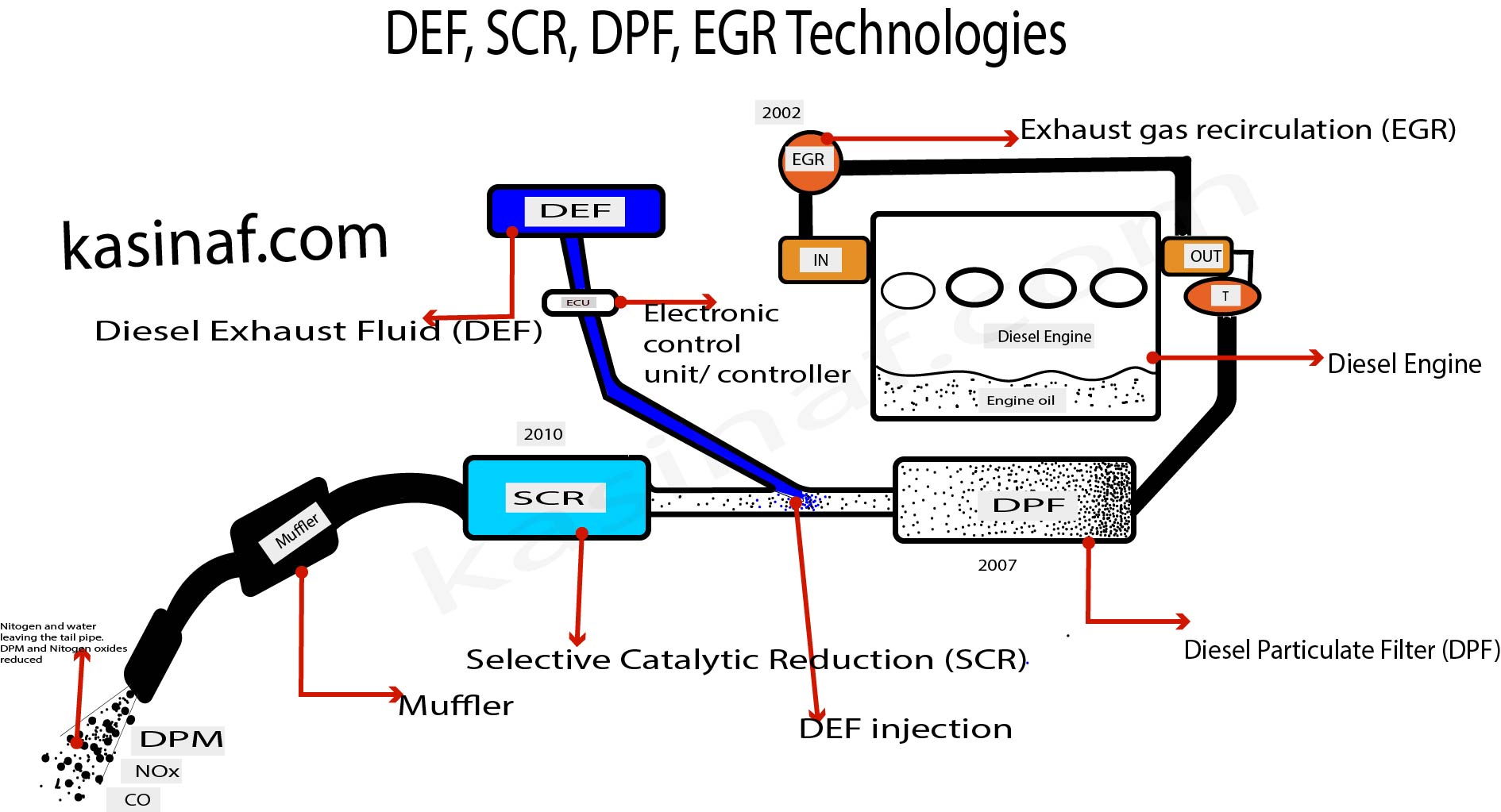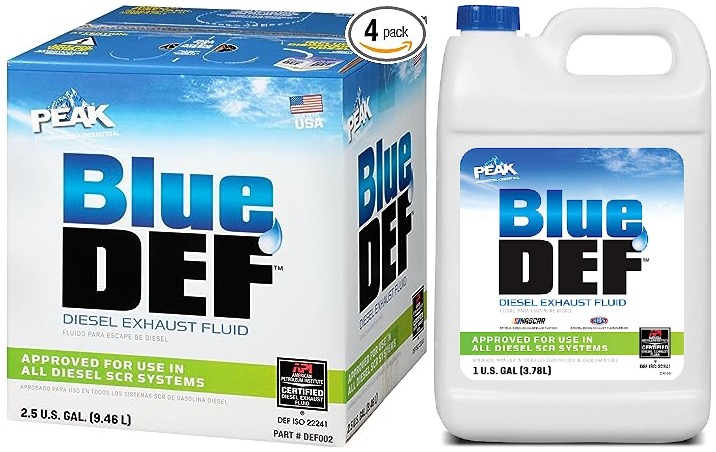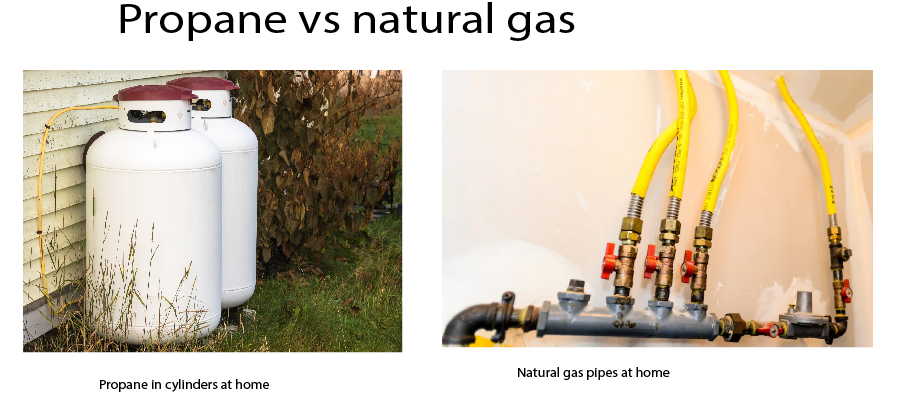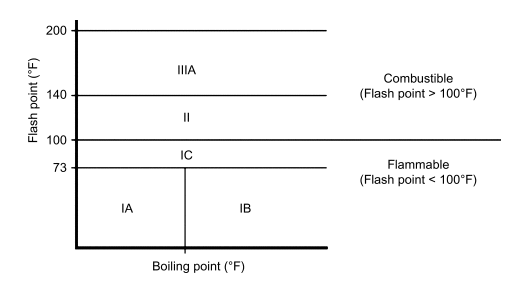Selecting the most suitable heating source for your home is a decision that significantly impacts your comfort, budget, and environmental footprint. In many urban areas, natural gas takes the lead as the primary choice for home heating, owing to its convenience and low maintenance requirements. However, for those in rural or less urbanized regions, the choice often narrows down to two contenders: propane and heating oil.
This article, “Propane vs. Oil Heat: Which Is Best For Home Heating?” delves into the vital considerations that can help you make an informed choice between these two heating options. Whether you’re a homeowner evaluating the most cost-effective heating solution or an environmentally conscious individual seeking to minimize your carbon footprint, this guide will provide insights into the factors you should weigh when making this important decision.
Heating Options in the U.S.
In the United States, heating options vary widely due to regional and climatic differences. Natural gas is predominant in urban areas, known for its convenience and low maintenance. Electricity is universally available but can be costly. Wood remains popular in rural and forested regions. Heating oil is common in the northeastern states, while propane is widely used in rural areas. Coal’s use has dwindled due to environmental concerns. Solar, geothermal, pellet stoves, and heat pumps offer alternative, eco-friendly options. The choice of heating source depends on factors like location, climate, and personal preferences. This article focuses on propane and heating oil for a detailed comparison.
Importance of cost considerations in choosing a heating fuel
Cost is a pivotal factor in selecting a heating fuel. It significantly impacts your budget, as heating expenses constitute a substantial part of household costs. Understanding the price trends, efficiency, and local rates helps make a cost-effective and budget-conscious choice.
Propane vs. Heating Oil
A. Differences between Propane and Heating Oil
- Sources and Production:
- Propane: Propane is derived from natural gas processing and is stored as a liquid under pressure until used. It is a byproduct of natural gas and crude oil production.
- Heating Oil: Heating oil, also known as home heating oil, is a low-viscosity fuel oil that comes from the refinement of crude oil.
- Regional Preferences for Heating Fuels:
- Propane: Propane is popular in rural areas, where it is delivered by truck and stored in above- or below-ground tanks. It is the fuel of choice in many rural regions.
- Heating Oil: In the Northeast, heating oil is a common choice. Like diesel fuel, it is delivered by trucks and pumped into storage tanks, typically located in basements. The use of underground oil tanks has decreased due to environmental concerns.
- Environmental Impact and Cost as Key Factors:
- Cost Comparison: Comparing heating costs isn’t straightforward. While propane is generally cheaper per gallon, heating oil is more energy-dense. Costs can vary regionally, making local rates a crucial consideration.
- Environmental Impact: Propane is considered more environmentally friendly, emitting less carbon dioxide per unit of heat produced compared to heating oil. Natural gas, although not the focus, is the most cost-effective in terms of CO2 emissions if available.
- Maintenance and Efficiency:
- Maintenance: Propane systems usually require less maintenance, with clean combustion due to minimal moving parts. In contrast, oil burners necessitate regular upkeep and are sensitive to wear and soot buildup.
- Efficiency: Propane is known for higher energy efficiency, offering more heat per unit than heating oil.
- Storage:
- Propane: Propane can be stored in above- or below-ground tanks. It’s a liquid under pressure and becomes a gas when used.
- Heating Oil: Heating oil is stored in tanks, commonly located in basements or outside. Underground tanks are less common due to environmental concerns.
- Initial Costs:
- Propane: Propane furnaces might have a higher upfront cost compared to oil furnaces.
- Heating Oil: Oil furnaces are typically more affordable upfront, making them an attractive option for budget-conscious consumers.
- Appliance Compatibility:
- Propane: Propane is versatile and can power various home appliances, such as stoves, ovens, dryers, and heating systems.
- Heating Oil: While heating oil is primarily used for home heating, it has limited applications compared to propane.
- Energy Measurements:
- Gasoline, diesel, and heating oil are measured in gallons, while gases like natural gas and propane are measured in cubic feet or liters. These differences can add complexity when comparing energy sources.
III. Cost Comparison
A. Comparison of Heating Oil and Propane Costs:
One of the key factors that influence the choice between heating oil and propane is the cost. The cost of these fuels can vary significantly, and it’s important to compare them to make an informed decision. Here’s a cost comparison between heating oil and propane:
- Heating Oil: As of 2020, the cost of heating oil was $2.12 per gallon. When measured in terms of cost per 100,000 Btu (British Thermal Units), it was approximately $1.54.
- Propane: In the same period, propane cost $1.77 per gallon, making it cheaper per gallon compared to heating oil. When measured in terms of cost per 100,000 Btu, it was approximately $1.61.
- Natural Gas: While natural gas was mentioned in the comparison, it was not directly compared with heating oil and propane in terms of cost per unit and cost per 100,000 Btu. However, natural gas was noted as a clear winner in terms of cost if it’s available on your street.
B. Factors Affecting Fuel Pricing:
The cost of heating oil and propane can be influenced by several factors, and it’s important to understand these considerations when evaluating fuel pricing:
- Regional Variations: Prices can vary significantly by region, so it’s essential to check with local suppliers to verify the current rates in your area.
- Global Market Forces: Both heating oil and propane are subject to international market forces. Crude oil prices, geopolitical factors, and supply and demand dynamics can impact fuel costs.
- Seasonal Fluctuations: Fuel prices may change with the seasons. For instance, heating oil prices often rise during the winter months when demand is higher.
- Delivery Costs: The cost of delivering the fuel to your location can also affect the overall price.
C. The Importance of Consistent Measurement Units (Btus):
Comparing different fuels requires a consistent basis for measurement. In this case, Btus (British Thermal Units) per unit of fuel provide an essential benchmark for evaluating the heat energy produced by each type of fuel. Btus help standardize the measurement, making it easier to assess which fuel is more cost-effective for heating purposes.
IV. Factors to Consider When Choosing Propane or Oil
When choosing between propane and oil as your home heating option, several factors need to be considered. These factors play a significant role in your decision-making process. Here’s an explanation of these factors:
A. Maintenance Requirements:
- Propane: Propane heating systems are known for their low maintenance requirements. Achieving the proper air-fuel mixture in propane systems is accomplished with no moving parts, resulting in very little maintenance. Most propane burners can work with either natural gas or propane, requiring only adjustments to the pressure regulator and burner orifices.
- Heating Oil: Oil heating systems, on the other hand, have relatively higher maintenance needs. Oil must be pumped to the oil burner, and the burner is sensitive to wear and the buildup of soot and carbon. As a result, oil burners are generally more expensive upfront and require regular maintenance to ensure efficient and safe operation.
B. Appliance Options:
- Propane: Propane is a versatile fuel that can power various home appliances, including stoves, ovens, dryers, outdoor grills, and even recreational vehicle (RV) systems. This flexibility makes it a suitable choice for those who want to use propane for multiple applications.
- Heating Oil: While heating oil is primarily used for home heating, it is not commonly used to power other household appliances. Most homes with oil heating also use electric stoves and dryers.
C. Water Heating Considerations:
- Propane: Propane is commonly used for water heaters and offers the benefit of relatively low cost and low maintenance. Propane water heaters can produce hot water quickly, making them a practical choice for homes with high hot water demand.
- Heating Oil: Oil-fired water heaters cost more than propane heaters but can also provide hot water efficiently. They may be suitable for those who use hot water for heating their homes and domestic purposes, as the same boiler can often heat both.
D. Environmental Impact and CO2 Emissions:
- Propane: Propane is considered a more environmentally friendly option compared to heating oil in terms of carbon emissions. It produces considerably fewer CO2 emissions per million Btus when burned.
- Heating Oil: Heating oil is less environmentally friendly in terms of CO2 emissions, with a higher carbon footprint compared to propane. It is considered one of the less eco-friendly heating options.
Ultimately, your choice between propane and heating oil should consider your specific needs, budget, and environmental concerns. Each fuel type has its advantages and disadvantages, and you should weigh these factors carefully before making a decision. Additionally, local availability and regional pricing can also influence your choice, so it’s a good idea to consult with local heating professionals for personalized advice.
V. Pros and Cons of Heating Oil
A. Benefits of Using Heating Oil:
Heating oil has several advantages that make it a viable choice for home heating, especially in the Northeastern United States:
- High Heat Output: Heating oil generates more heat per gallon compared to propane. This high BTU (British Thermal Unit) output means that it can efficiently warm your home and provide sufficient warmth during cold winters.
- Fuel Efficiency: Heating oil boasts a higher BTU output per gallon compared to propane, resulting in better fuel efficiency. This means that you’ll need less heating oil to produce the same amount of heat, which can be cost-effective in the long run.
- Lower Purchase Cost: The equipment required for heating oil systems typically comes at a lower initial purchase cost, making it more accessible for homeowners.
- Safe Combustion: Heating oil is safe, vaporizing only at temperatures exceeding 140 degrees Fahrenheit. This characteristic makes it a safe choice for home heating, reducing the risk of accidents related to fuel storage and handling.
- Clean Burning: When burned, heating oil produces relatively clean combustion without generating soot indoors, resulting in cleaner air quality inside your home.
B. Drawbacks of Using Heating Oil:
Despite its advantages, heating oil also has some drawbacks:
- Price Volatility: The price of heating oil is subject to international market forces, and it tends to be more volatile than propane. Fluctuations in crude oil prices can impact the cost of heating oil, leading to uncertainty in heating expenses.
- Carbon Emissions: When burned, heating oil emits more carbon dioxide (CO2) compared to propane. This contributes to a higher carbon footprint, which may not align with environmental sustainability goals.
- Regular Cleaning and Maintenance: Oil furnaces require regular cleaning and maintenance to ensure efficient and safe operation. The sensitivity of oil burners to wear and the buildup of soot and carbon means that homeowners must invest time and resources into maintaining the system.
In summary, heating oil offers efficient and effective heating for homes, especially in regions with harsh winters like the Northeast. However, its price volatility and environmental impact are important factors to consider. Additionally, the need for regular maintenance may be a concern for some homeowners. Weighing these pros and cons can help you make an informed decision when choosing between heating oil and other heating options, such as propane.
VI. Pros and Cons of Propane
A. Benefits of Using Propane:
Propane is a popular choice for home heating and has several advantages that make it a desirable option:
- Lower Cost: Propane is generally less expensive per gallon compared to heating oil. This can result in lower heating costs, which is appealing to homeowners looking to save on energy bills.
- Lower Carbon Emissions: Propane is a cleaner-burning fuel compared to heating oil. It produces minimal amounts of carbon dioxide (CO2) when burned, contributing to reduced environmental impact and better air quality.
- Less Maintenance: Propane furnaces and heating systems typically require less maintenance compared to their oil counterparts. They usually have fewer moving parts, making them more straightforward to maintain.
- Versatility: Propane can power various home appliances, not just heating systems. This versatility allows homeowners to use propane for cooking, water heating, and more, providing an all-in-one energy solution.
- Safety: Propane is considered a safe fuel, as it vaporizes only at temperatures exceeding 140 degrees Fahrenheit. This characteristic reduces the risk of gas leaks and accidents.
- Longer Burn Time: Propane furnaces tend to provide a longer burn time compared to some other fuels, resulting in fewer refills and interruptions in heating.
- Efficient Space Heating: Propane heaters are known for their efficiency, with a high BTU (British Thermal Unit) output per gallon, which translates to effective space heating.
B. Drawbacks of Using Propane:
Despite its benefits, propane also has some drawbacks that should be considered:
- Higher Upfront Cost: Propane furnaces typically come with a higher initial cost compared to their oil counterparts. This can be a barrier for homeowners with limited budgets.
- Outdoor Storage: Propane tanks must be stored outdoors due to safety regulations, which can be less aesthetically pleasing and less convenient than indoor storage, like oil tanks.
- Potentially Higher Consumption: Although propane is cheaper per gallon, its heat output is lower than that of heating oil. As a result, homeowners might need to use more propane to achieve the same level of heating, potentially offsetting the cost advantage.
- Flammable: Propane is a combustible gas, which means it requires careful handling and storage practices to prevent accidents. Any leaks or mishandling can pose safety risks.
- Environmental Impact: While propane produces fewer CO2 emissions compared to heating oil, it is not as environmentally friendly as natural gas. The environmental impact of propane is a consideration for those concerned about reducing their carbon footprint.
- Region-Specific Availability: The availability of propane may vary by region, making it a less practical choice for some areas where natural gas or heating oil might be more readily accessible.
In summary, propane offers cost savings, lower emissions, and versatility for various home applications. However, its higher upfront cost, outdoor storage requirements, and potential higher consumption compared to heating oil are drawbacks to consider when choosing it as a heating fuel. The decision between propane and heating oil should be based on individual needs, budget, and environmental concerns.
VII. Cost of Oil Furnaces Vs. Propane Furnaces
When considering whether to use oil or propane for heating, it’s crucial to evaluate the costs involved, including initial expenses, efficiency, maintenance, lifespan, and fuel efficiency.
A. Initial Costs and Installation:
- Oil Furnaces:
- Oil furnaces generally have a lower initial cost, making them more budget-friendly for homeowners.
- Installation of oil furnaces is typically easier and requires less complex equipment, contributing to lower installation costs.
- Propane Furnaces:
- Propane furnaces often come with a higher upfront cost compared to oil furnaces.
- The installation of propane furnaces might be more complex, involving additional safety measures, which can result in higher installation expenses.
B. Efficiency and Maintenance Considerations:
- Oil Furnaces:
- While oil furnaces are less expensive to install, they tend to be less efficient than propane furnaces.
- Oil burners require regular cleaning and maintenance, including addressing issues like soot buildup and wear on components.
- Achieving the proper air-fuel mixture for clean burning can be challenging, and oil burners have more moving parts, making maintenance more frequent.
- Propane Furnaces:
- Propane furnaces are known for their efficiency and clean burning, providing better fuel efficiency and reduced operating costs.
- They typically require less maintenance due to their design with fewer moving parts.
- Conversion from natural gas to propane is relatively straightforward, often involving adjustments to the pressure regulator and burner orifices.
C. Lifespan and Fuel Efficiency:
- Oil Furnaces:
- Oil furnaces tend to have a shorter lifespan compared to propane furnaces.
- While they may offer lower installation costs, they might require more frequent replacements, contributing to long-term expenses.
- Fuel efficiency can be lower due to less efficient combustion.
- Propane Furnaces:
- Propane furnaces generally have a longer lifespan, providing homeowners with a more extended period of service before needing replacement.
- Their higher fuel efficiency, clean burning, and reduced maintenance needs can lead to lower operating costs and long-term savings.
In summary, oil furnaces have lower initial costs and are easier to install, but they tend to be less efficient and require more frequent maintenance. Propane furnaces come with a higher initial cost but offer better fuel efficiency, fewer maintenance requirements, and a longer lifespan. The choice between the two should consider your budget, long-term cost considerations, and the specific heating needs of your home. Consulting local heating professionals can provide valuable insights tailored to your situation, helping you make an informed decision.
VIII. Uses of Heating Oil and Propane:
When it comes to choosing between heating oil and propane, it’s essential to understand their common applications and where they are used. These fuels have diverse uses beyond home heating, making them relevant to various industries and applications.
A. Common Applications of Heating Oil:
Heating oil, derived from crude oil, has a range of applications, with a primary focus on home heating in many regions. Here are some common applications of heating oil:
- Home Heating: Heating oil is widely used for residential heating purposes, especially in regions where other heating options, like natural gas, might not be readily available. It provides reliable warmth during the colder months.
- Industrial Uses: Heating oil is employed in industrial settings, powering machinery, equipment, and processes that require heat. Its efficiency and high energy content make it suitable for various manufacturing processes.
- Backup Generator Power: Many commercial and industrial facilities rely on heating oil to fuel backup generators, ensuring uninterrupted power in the event of electrical outages.
- Water Heating Equipment: Some homes and businesses use heating oil for water heaters, providing a consistent and efficient supply of hot water.
- Stoves, Ranges, and Boilers: Heating oil can also be used in household appliances like stoves, ranges, and boilers, allowing for efficient and reliable cooking and space heating.
B. Common Applications of Propane:
Propane, a versatile liquefied petroleum gas (LPG), has a wide range of applications beyond home heating. Here are some common uses of propane:
- Heating Homes: Propane is frequently used for residential heating, providing an efficient and clean-burning source of warmth in areas where natural gas might not be available.
- Fuel for Outdoor Grills: Propane is a popular choice for powering outdoor grills and barbecues due to its convenience, clean combustion, and ability to quickly generate high heat.
- Powering Outdoor Equipment: Propane is used to fuel various outdoor equipment, including lawnmowers, chainsaws, and other landscaping tools. Its portable and efficient nature makes it suitable for these applications.
- Fueling Recreational Vehicles (RVs): RV owners commonly use propane for cooking, heating, and refrigeration while traveling, as propane is compact, portable, and easily stored.
- Heating Indoor Appliances: Propane can power indoor appliances such as stoves, ovens, clothes dryers, and water heaters, offering efficient and reliable operation.
- Heating Outdoor Areas: Propane is used in outdoor patio heaters, fire pits, and torches to provide warmth and create a comfortable outdoor environment.
Both heating oil and propane serve diverse applications, and their usage extends beyond home heating. Understanding these applications is essential for homeowners and businesses when considering the most suitable fuel source for their specific needs. It’s also important to consider factors like efficiency, availability, and environmental impact when making a choice between heating oil and propane.
Conclusion
Choosing between heating oil and propane for home heating depends on various factors. While cost, efficiency, and environmental considerations play a role, local factors are crucial. Availability, regional pricing, climate, regulations, and local expertise all shape the decision.
Heating oil offers efficiency and warmth, but it’s subject to price volatility and emits more CO2. Propane, while cleaner, may be more expensive per unit of heat. Ultimately, the choice should align with your local context. Consider what fuels are accessible and affordable in your area, and ensure your decision complies with local regulations. Seek advice from local experts who understand the nuances of your region. By weighing these factors, you can make a well-informed choice that best suits your home heating needs.












